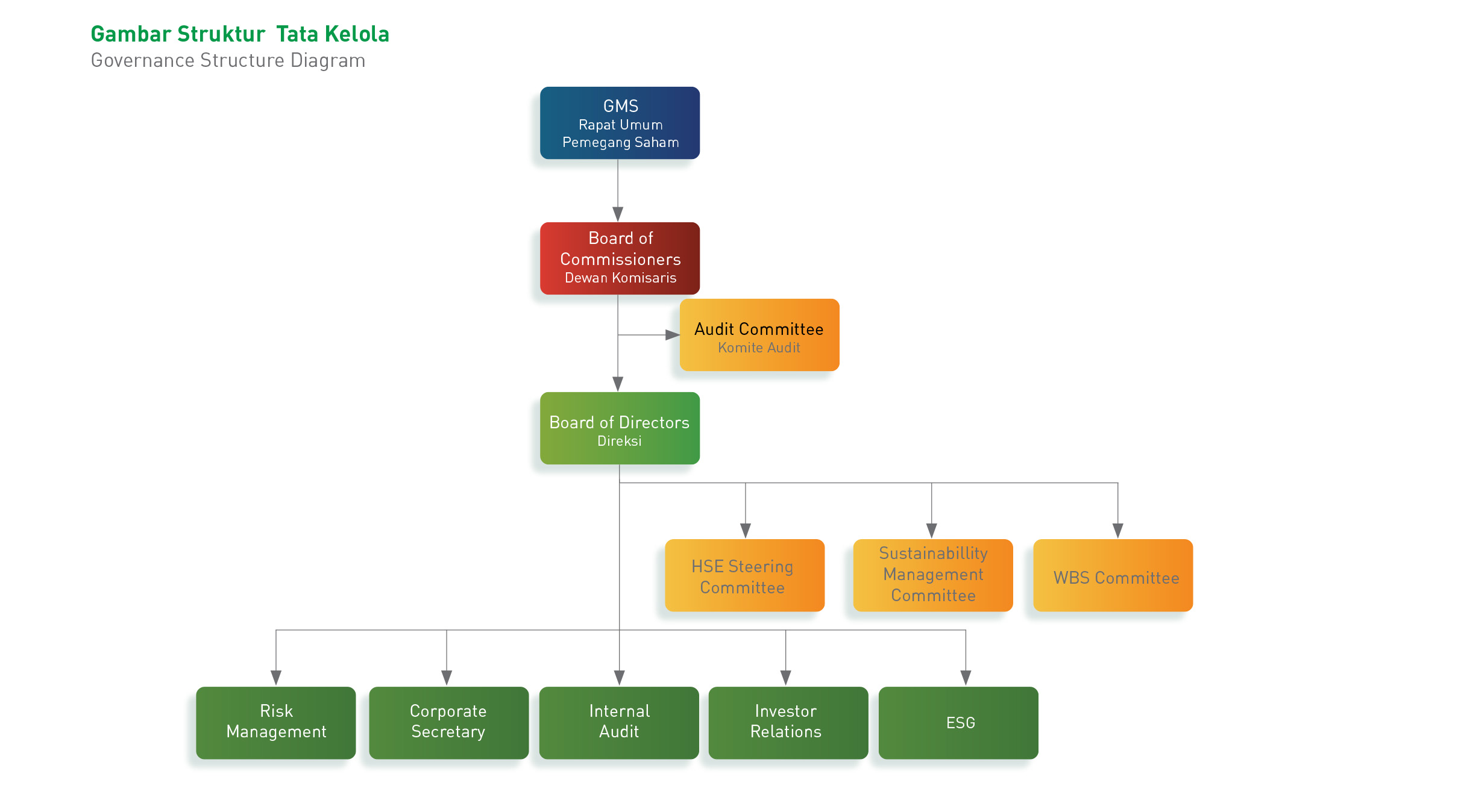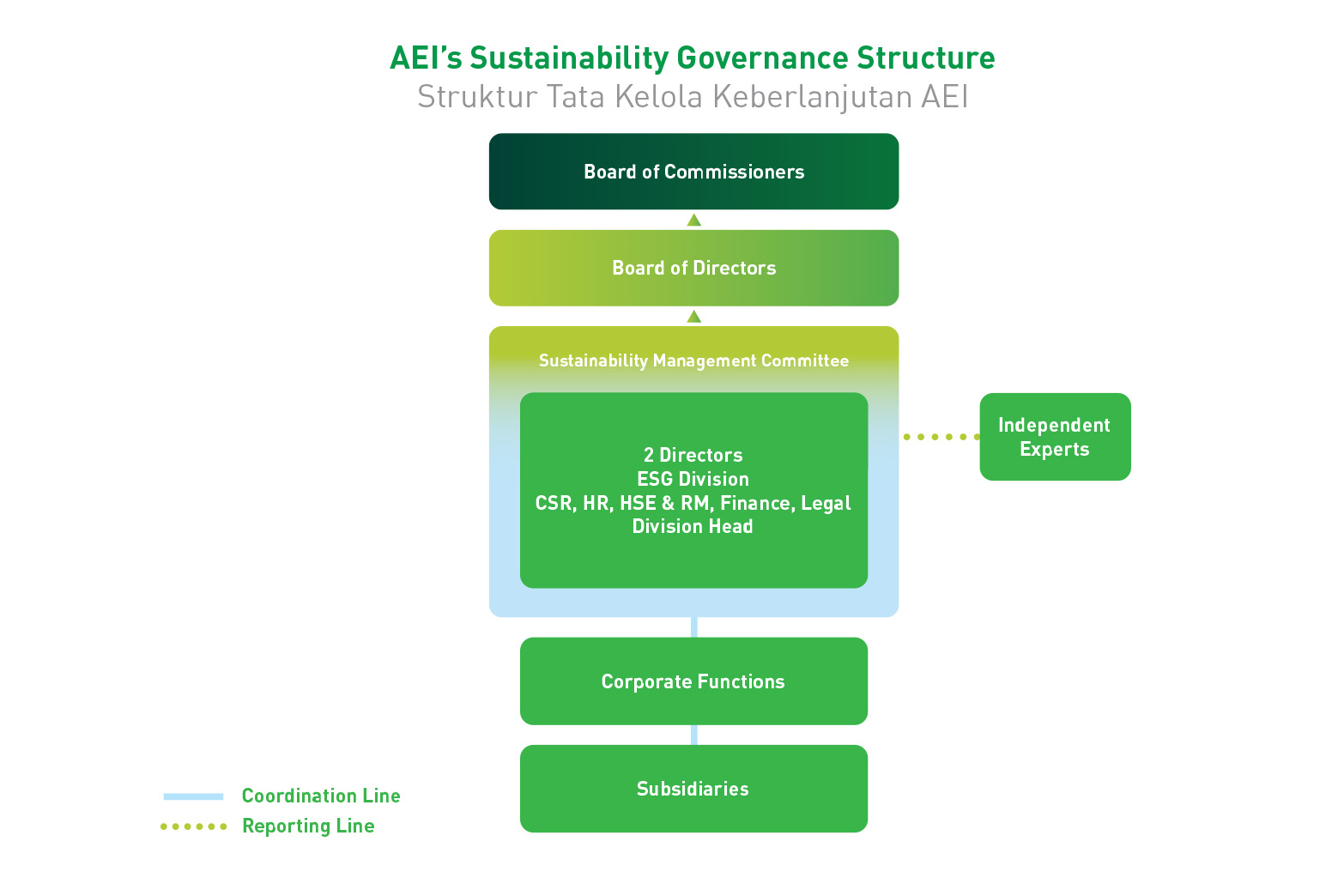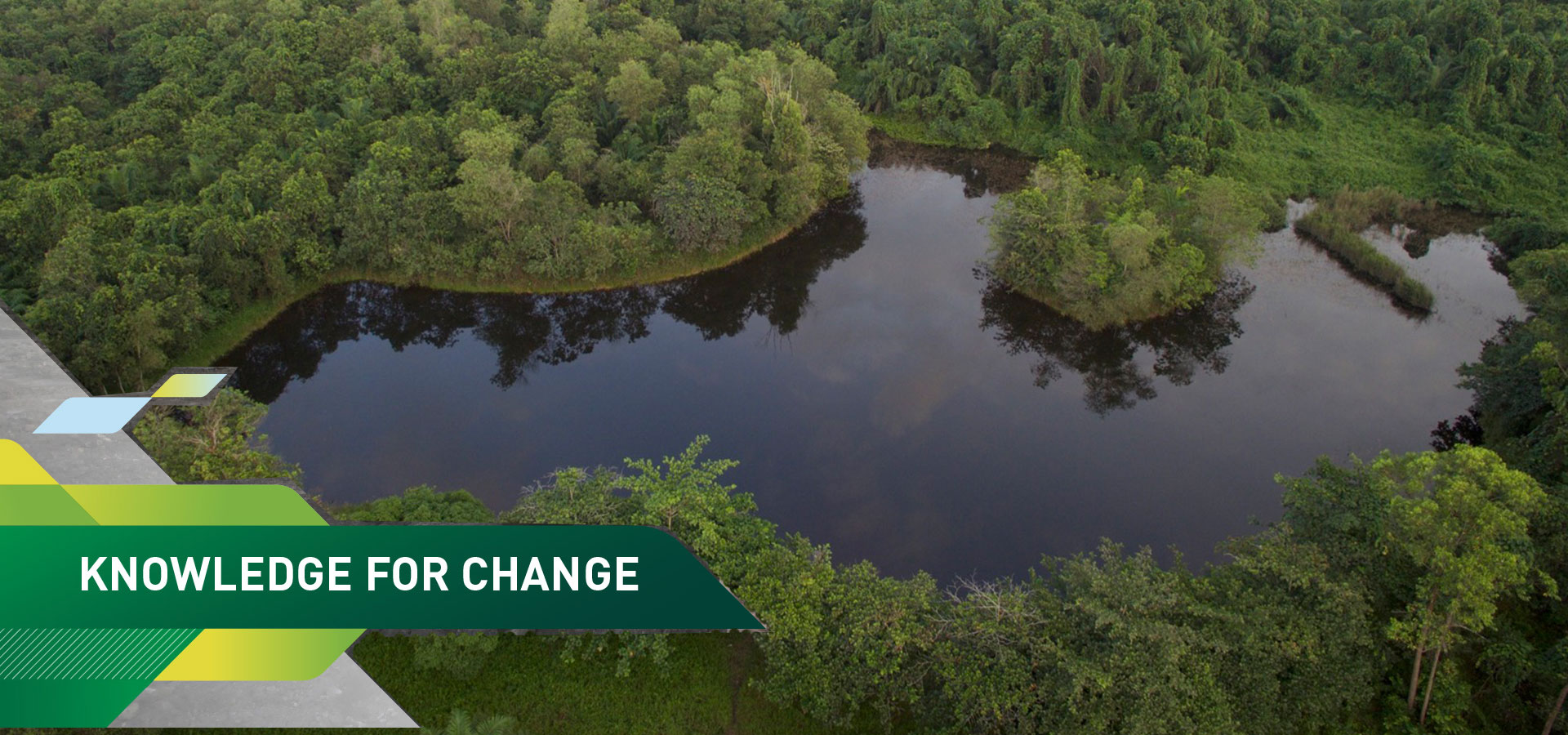GOVERNANCE
- Corporate Governance

AEI was established as a Limited Liability Company in accordance with Law No. 40 of 2007 on Limited Liability Companies, as amended by Government Regulation in Lieu of Law No. 2 of 2022 on Job Creation (referred to as “Company Law”).
General Meeting of Shareholders (GMS)
The General Meeting of Shareholders (GMS) is the highest decision-making forum in the company where shareholders gather to discuss and make strategic decisions concerning the company’s direction and policies. The primary function of the GMS is to provide shareholders with the latest information on the company’s performance, receive financial reports, and approve important decisions such as changes to the company structure, the selection of the Board of Directors, and dividend policies. This meeting also allows shareholders to pose questions, provide feedback, and actively participate in overseeing the company’s operations. The GMS is typically convened on an annual basis. However, an Extraordinary GMS may be convened in the event of emergencies or when urgent decisions are required. Through the GMS, the company promotes transparency, accountability, and participation, all of which are key elements of good corporate governance principles
Board of Commissioners
The Board of Commissioners plays a central role in the Company’s governance, responsible for overseeing and providing strategic direction to the Board of Directors. The main functions of the Board of Commissioners involve assessing and monitoring management performance, providing guidance for strategic decision-making by the Board of Directors, and ensuring that the company’s policies and practices are in line with laws and ethical norms. Its authority includes the selection and evaluation of the President Director’s performance, the approval of business plans, and the oversight of the company’s risk management systems. To enhance its effectiveness, the Board of Commissioners has an Audit Committee, whose duties include reviewing and providing independent opinions on the financial information to be published, ensuring compliance with laws and regulations, providing recommendations related to the appointment of independent auditors, and evaluating the implementation of audit services by independent and internal auditors. Through its role, the Board of Commissioners ensures that the company operates with transparency, integrity, and consistency, instilling trust in shareholders and building a strong foundation for long-term sustainability.
Board of Directors
The Board of Directors plays a central role in strategic decision-making and the daily management of the company. Its functions include designing and implementing policies, managing risks, and ensuring the achievement of the company’s objectives. The members of the Board of Directors are responsible for leading the executive team, providing clear direction, and ensuring the company’s operational sustainability. To maintain independence, the members of the Board of Directors are not part of the Board of Commissioners, allowing them to maintain an objective perspective and decision-making in managing and overseeing the company’s operations. The duties, authorities, and responsibilities of the Company’s Board of Directors are further outlined in the Articles of Association and the Board of Directors Charter.
- Sustainability Governance
By building a well-established sustainability governance structure and by assigning responsible individuals, Adaro Energy Indonesia demonstrates its commitment to achieving a sustainable future for all stakeholders. The following is a diagram of AEI’s sustainability governance structure.

The sustainability governance structure within AEI involves the governing board and several key elements:
Board of Commissioners
The Board of Commissioners oversees and provides guidance to the Board of Directors in managing risks and strategies related to sustainability and climate.
Board of Directors
The Board of Directors is responsible for implementing sustainability management related to AEI’s strategies, including the application of sustainability reporting and disclosure, and ensuring that it aligns with the applicable laws and regulations in Indonesia. The Board oversees all aspects of sustainability business management, including risks related to climate change. It also reviews the company’s sustainability goals and integrates sustainability issues, risks, and opportunities into strategic planning and decision-making. The primary task of the sustainability board is to set the strategic direction for sustainability policies and management.
Sustainability Management Committee
To uphold our commitment to implementing sustainable practices in business operations, AEI has established an ESG Division that plays a role in developing sustainability strategies and goals, including climate-related risks and opportunities. The implementation of ESG aspects is part of that and is the responsibility of all work units under the supervision of the Board of Commissioners and the Board of Directors through the Sustainability Management Committee.
Structure and Membership
Chairperson: ESG Division Head Members:
- 2 (two) Directors
- CSR Division Head
- Human Resources Division Head
- HSE & Risk Management Division Head
- Finance Division Head
- Legal Division Head
The duties of the Sustainability Management Committee include:
- Assisting the Board of Directors in setting the strategic direction for sustainability policies and management.
- Implementing sustainability policies and management by coordinating with company functions, as well as evaluating the company’s sustainability performance.
- Taking a hands-on approach to formulating basic policies, monitoring implementation, and reviewing the effectiveness of strategies to ensure alignment with the Company’s business strategies and objectives.
- Discussing the next steps needed in the sustainability journey.
Independent Experts
Independent experts, as sustainability experts from outside AEI, play a key role in providing objective and professional advice that aligns with AEI’s business needs and context. This allows AEI to develop an effective and well-targeted sustainability strategy and enhances the credibility and transparency of its sustainability commitment.
Corporate Functions
The integration of sustainability-related decisions into our work across the company is key to achieving our sustainability goals. For this reason, each corporate function is responsible for integrating sustainability-related decisions into their work and ensuring the achievement of measurable and targeted KPIs. This allows the company to monitor the performance of all business units in the implementation of sustainability KPIs to ensure that all stakeholders are consistently progressing toward shared goals.
Subsidiaries
Each subsidiary within the Adaro Group is responsible for implementing the assigned KPIs and for integrating a sustainable approach into its business operations.
- Climate Related Risk Management
Assessing Climate-Related Risks
AEI recognizes the significance of understanding and managing climate-related risks that could impact the company’s operations. As a proactive measure, Adaro conducts examinations and assessments of climate-related risks, such as extreme weather, water scarcity, drought, floods, and forest fires. Changes in these conditions could have significant impacts on the company’s supply chain, production, and operational infrastructure. The significance of understanding climate risks is also reflected in Adaro’s policy to include risk assessments due to environmental regulation changes. Changes in climate and environmental regulations can affect the company’s obligations, require operational adaptations, and raise legal and reputational risks. Therefore, Adaro closely monitors the latest regulatory developments and assesses the potential impact on the business. Notable regulatory impacts to consider include Presidential Regulation No. 98 of 2021 on the Implementation of Carbon Economic Value for the Achievement of Nationally Determined Contributions and Greenhouse Gas Emission Control, as well as Presidential Regulation No. 112 of 2022 on the Acceleration of Renewable Energy Development for Electricity Supply.
This holistic approach enables Adaro to identify potential risks arising from climate change and environmental regulations. Thus, the company can implement appropriate mitigation strategies, including the use of eco-friendly technologies, supply chain diversification, and preparedness for potential risk scenarios. By integrating these aspects into its risk management process, AEI ensures that its business remains adaptive and resilient amidst climate dynamics and regulatory changes.
Climate-Related Risk Management Process
The climate impacts include weather risks arising from high water levels in the Barito River, affecting logistics operations, particularly for AMI. In response to this risk, our proactive mitigation strategy involves strengthening the resilience of the supply chain amid low water levels along the Barito River. This includes optimizing the number of barges in the upper cycle, accelerating the loading and unloading processes at the Intermediate Stockpile (ISP), closely monitoring water levels at Tuhup and Siwak, and strategic planning and scheduling to minimize ship delays and ensure barge readiness during favorable Barito River conditions. Furthermore, the successful completion of the first Barge to Barge (B2B) facility is an integral part of the company’s comprehensive approach to strengthening the supply chain.
AEI has established various efforts to manage climate-related risks, including:
- Integrating climate-related risks into AEI’s overall risk management.
- Forming a Crisis Management Team (CMT) tasked with preparing disaster response planning, including natural disasters impacting the company’s ability to operate as usual
- Enhancing risk management competency and building a risk management culture to enable employees to comprehend operational and climate-related risks.
- Holding a risk management forum with experts or practitioners.
- Inviting AEI’s Board of Directors to discuss specific risk management strategies.
- Organizing a risk management article writing competition with the main theme of people, culture, and sustainability.
- Benchmarking the Company’s Risk Management against international standards.
- Conducting risk management evaluations through risk culture surveys.
- Stakeholder Engagement
A company’s success depends on its ability to establish effective communication, understand stakeholder needs, and build mutually beneficial relationships. For this reason, the Adaro Group actively engages in communication with various parties, including through open dialogues, discussion forums, and partnership programs.
For further information about our Stakeholder Engagement can be found within pages 267 of our 2023 Sustainability Report.
